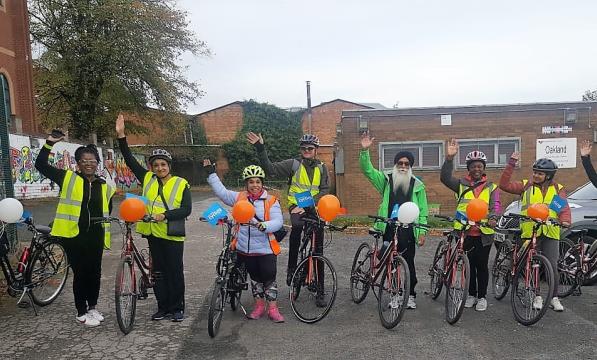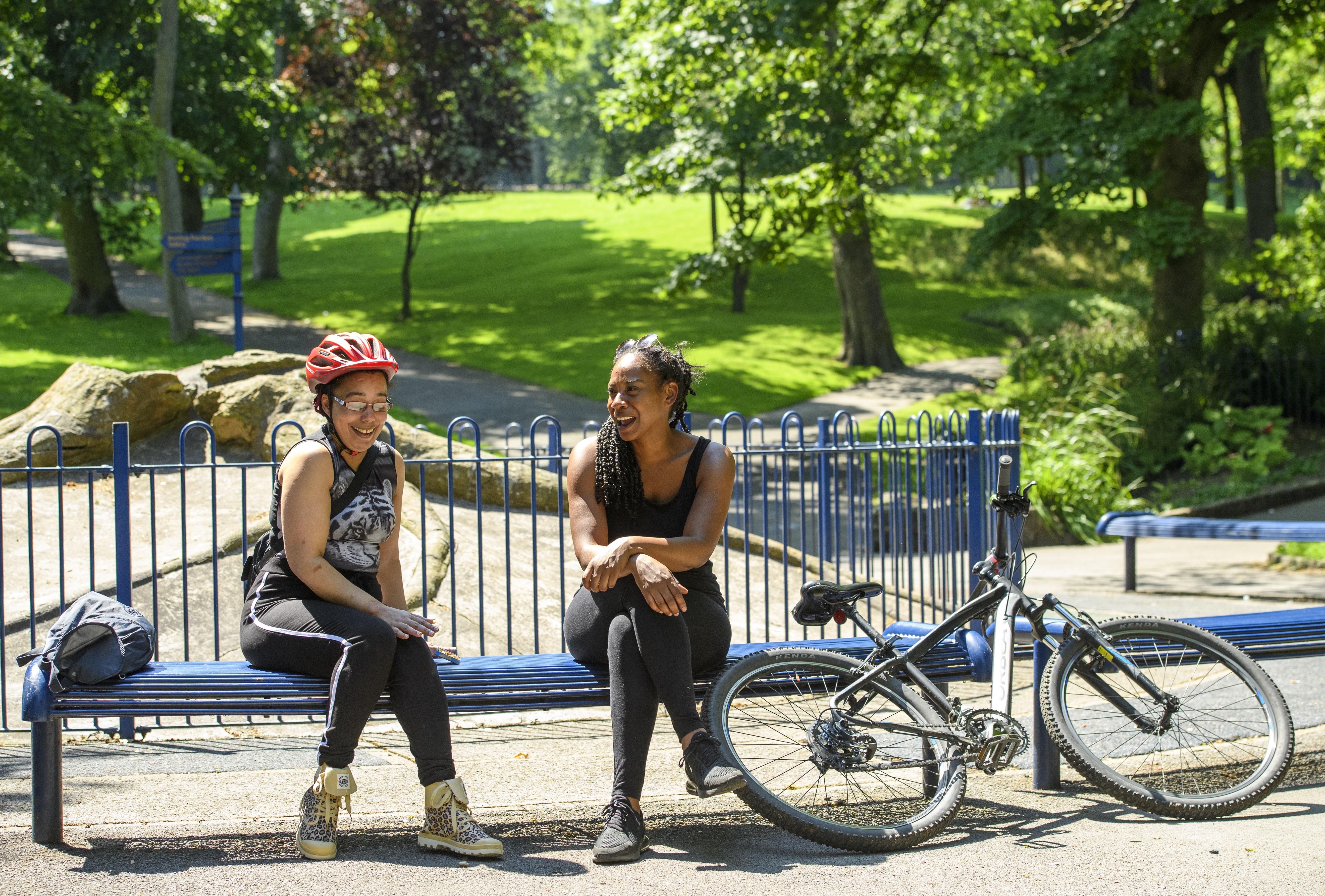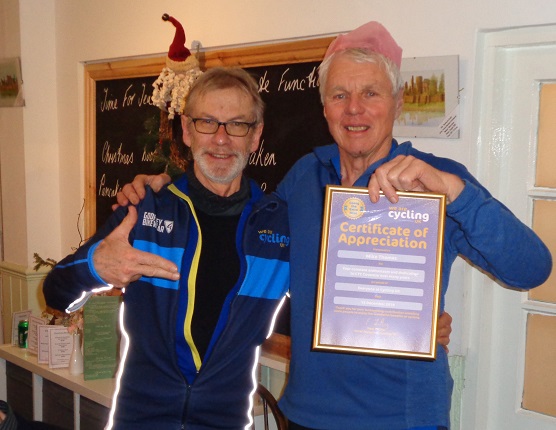Why you should join a cycling group

1) New navigation
The first and most obvious reason is that you'll have someone who knows the area to tell you where to go - even if you can just download a route from Strava or other websites, it's not the same as having someone alongside you pointing out places of interest, finding the best places for coffee, avoiding hazardous junctions and tricky terrain, and assisting with discovering great scenery. There will be greater variety to your riding with someone else's ideas and perhaps you'll even find yourself exploring much further afield than you would on your own.
2) Making friends
Secondly are the companions you'll meet through a club, who may often turn into lifelong friends. Experiencing something on your own is great but having someone else to share it with is a basic human need, as psychologist Abraham Maslow posited in his famous theory, and means that the cycling memories you make can be resurrected whenever you are together. Have you ever laughed at something when by yourself? Perhaps, but laughing with someone else is easier and much more fun - and definitely less likely to attract funny looks!
3) Safety in numbers
And on that note, some people feel embarrassed to be seen on a bike and therefore never cycle. But if you're in a group, you will feel a lot less nervous about riding in public - we are, after all, pack animals at heart - and any attention won't be just on you.

4) A sense of belonging
If the group or club you join is very active in the area, you'll also be an integral part of the wider local community. Plus, if the group has a club jersey or other branded items, you'll have a distinct identity and can feel a sense of pride at belonging to a successful club. And, even better, if it's a Cycling UK group, you'll be part of a network of thousands of cycling groups throughout the UK, each supported by our insurance and other resources, ensuring rides are run in a safe, legal and welcoming way.
5) Shared learning
You'll also become a more confident with your cycling skills after riding with a group - if you're a novice rider, they'll show you all sorts of tips and techniques from what to take on a ride, what it's good to wear in different weather conditions and, importantly, how to keep your bike roadworthy. They may even be able to help with bike handling and road positioning, though we would always recommend having lessons with a qualified National Standard cycle instructor if you would like to improve this kind of cycling skills.
6) Get matched
Most groups have rides suitable for all levels so if you're unsure of your fitness and ability, contact the group first to chat over what they can offer. However, they should always have a policy of never leaving anyone behind! Our guidelines for ride leaders make this clear, while our guidance for riding in a group (right) tells you what you might expect on a group ride.

7) Competitive outlet
If you've got a more competitive side, groups are a great place to show your prowess on a bike with activities like touring competitions, hill climbing, treasure hunts, audax events and reliability rides, where you have to complete a route within a certain time limit, picking up checkpoints as you go. (Note: Cycling UK groups generally do not put on time trials or mass start races as these are not covered by our insurance for groups.) Competitions give you another reason to go on a ride and the kudos you'll get from real people will be much more satisfying than any virtual praise. You may even receive a real trophy for your mantelpiece!
8) Cycle chat
Clubs often run social evenings where you can watch slideshows, listen to talks about cycling and other topics and generally catch up with those riders who you may not see much at other times.
9) Give back
As a member of a club, there are a wide range of volunteering opportunities open to you, from just washing up the teacups at an event to running the group itself as Secretary or Chair to making use of your numerical skills by being a Treasurer - it's not only an opportunity to give back but also another way to make friends and have some fun at the same time. And if you offer your services as a ride leader, you can enjoy taking people to the places you want to go at a time and pace that suits you.
10) Feel great
Volunteering with a group is also brilliant for improving your mental health and wellbeing - knowing you are doing something meaningful with your spare time by enabling others to enjoy the huge benefits of cycling is a very powerful feeling.
Why we joined a cycling group
Riders of all kinds can benefit from joining a cycling group. Glyn Salmon, who rides a trike, says: "Having two bouts of cancer left me unable to ride a bicycle again.The people within En Velo CC not only helped me in both my physical and mental rehabilitation but also give me tremendous encouragement when out with them on my trike."

Ride leader Brian Bell of Handsworth's Beat the Street, another Cycling UK group, (fourth from left in main photo above) says:
"The answer to 'Should I join a cycling club?' is it gives you the motivation to reduce stress levels after a long week at work. Even if you don't work, why stay indoors looking at four walls when there is so much to see outdoors? Cycling gets you involved with like-minded people from all backgrounds, it's a chance to make new friends and also find other projects in your local area bringing people together. You may be safer riding in a group than solo and you are also picking up on other cyclists' skills."
Cycling gets you involved with like-minded people from all backgrounds, it's a chance to make new friends
Brian Bell, Beat the Street Community Cycling Club
He adds: "There is so much joy in a cycling group, you get to see the great outdoors exploring different places each time that you did not know even existed. It is great for our mental health as joining a club allows you to mix and interact with other people who may have problems with life issues too, while getting fit at the same time."
It's true - there can't be many other physical activities which allow you to chat to others as much as cycling does. Joining a cycling group might be one of the best things you've ever done!
Finding a group to ride with
We have a large number of groups throughout the country catering to a wide variety of different cyclists. But if there isn't one near you, why not start your own?






